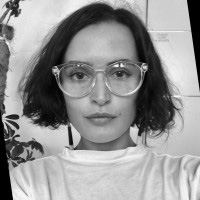“We must look at each other as equals”
Martin meets JML* enthusiasts
Liridona Sopjani means that seeing each others as equal humans can help us solve some hard global issues. If we listen to everyone's opinion and don’t judge because of looks, age or title we can reach far.
Who are you and what is your role at KTH?
"I was born and raised in the native land of Dardanian tribe, now referred to as Republic of Kosovo, and yes, I experienced the terrors of war at age 8. In 2013, I obtained a scholarship by the Swedish Institute to study in Sweden at Uppsala University. At KTH, I pursued PhD studies and have just recently defended my thesis, while also leading a research project in the last two years".
I remember very well when you arrived at KTH, a few years ago, you were one of the first non-native Swedish members in your group. What was it like?

"My experience at KTH began in 2014 after sending an e-mail to a few people at ITM, looking for a supervisor. To my surprise, I was welcomed at ITRL (integrated transportation lab) which at that time had just started and was an experimental garage. The fact that my e-mail was answered challenged my preconceptions that a university with a reputations as KTH would be open to proposals from the outside. I was really new in Sweden, unfamiliar and uneducated about many things but hungry to learn. The experience was all eye-opening and I was treated with great care. The team were actually listening to my ideas, which all came to a surprise as I did not expect to also be considered equal with the rest of the team. KTH gave me an impression of intellectual freedom which I continue to share. The background I had come from was all crumbled by war and the social struggles I cared for were common topics".
So, what would you say to support future colleagues?
"My usual advice is to reach out to university departments, people, and their projects. I try to inspire that our preconceived understandings and perceptions mustn’t repel us from reaching out for the people and the knowledge we need for our development".
What made you engage in issues like gender equality, diversity and equal terms?
"I try to participate in anything that benefits humans to look at each other as humans. Issues such as inequality based on humanly differences make us look down on each other instead of looking after each other so that we can feel safe enough to look up to the awe that surrounds us. Human differences, ways of being, existing, and living in the world, which should have been celebrated for existing are instead some of the most wicked social struggles. Sadly, they are prevalent in every pixel of our life and I feel the need to continuously be on the watch. My personal experience, whether limited or broad, is what makes me be attentive. I have some understanding that at any moment I could be the one curating bitter experience for others through my limited judgments, and this in a way serves as a checkpoint onto my eye blinders. Without strong foundations of human society where difference of being and safety of expression are cherished, how can we look up to the stars? Humans have important questions waiting to be answered. This can’t be achieved when we continuously have to deal with how we view each other as ‘more’ or ‘less’".
How would you characterize the current culture at KTH?
"I would say that there is not one culture at KTH. There are as many cultures as there are diverse individuals at KTH. As individuals, we make KTH’s collective of cultures. Some individuals and social groups do manifest their personal cultures more than others, and that can be at the cost of others making space for that, fitting into that, or even being completely left out. The idea is not to have one flavor continually prevalent; the idea is to continually let different flavors be present without fearing the result of change. I see culture at KTH as a continuous conscious effort of every member of the collective to be on the watch for the self and one another. Those standing up for the benefit of the whole collective must be protected and supported without fear of politics, position of power, and position of authority to come in the way. KTH is the house of this collective of cultures, and as a house it can host and attract many more cultures that would enrichen its collective. For me university means freedom to think, to observe, to learn and I try to embody this in my capacities, because having KTH be associated with it benefits everyone".
What do you think is the hardest challenge in the JML efforts at KTH?
"I would say to make it obvious how position of authority and power damage our collective efforts to bring human equity into actual practice. Hunger for position of authority and significance inside university doors is a dangerous path even for those not seeking them. I do recognize how difficult and complex this is. Understanding power and how it easily can manifest into the conversations, work, projects, people, and resources is not yet on everyone’s to-do list but it should be essential"!
*JML is a KTH concept that stands for Gender Equality, Diversity and Equal opportunities. More about the JML work at the ITM School
